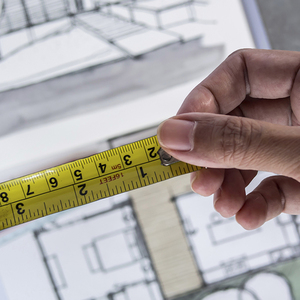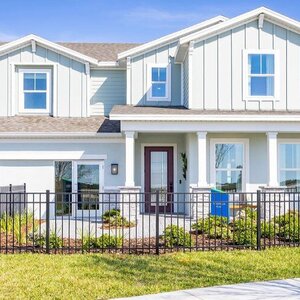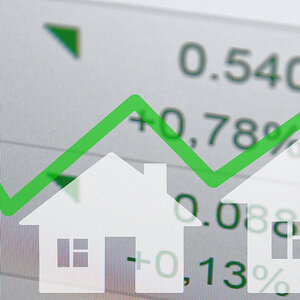Residential Real Estate News

Despite Coronavirus, U.S. Homeowners Gained Record $1.5 Trillion of Equity in 2020
Residential News » Laguna Beach Edition | By Michael Gerrity | March 12, 2021 8:20 AM ET
Average annual equity gain of $26,300 per homeowner
According to CoreLogic's latest Home Equity Report for the fourth quarter of 2020, U.S. homeowners with mortgages (which account for roughly 62% of all properties) have seen their equity increase by 16.2% year over year, representing a collective equity gain of over $1.5 trillion, and an average gain of $26,300 per homeowner, since the fourth quarter of 2019.
As competition for the dwindling supply of for-sale homes drove prices up, average annual homeowner equity gains in the fourth quarter of 2020 reached the highest level since 2013. For current owners, these gains have created a buffer against financial difficulties brought on by the pandemic, and enabled means for pursuing renovations as people are spending more time at home. For the broader market, home equity gains have also reduced the risk of homes falling underwater and pushing distressed sales into the market.

"Compared with a year earlier, home prices in December 2020 were up sharply -- 9.2%, according to the CoreLogic Home Price Index -- boosting the amount of home equity for the average homeowner with a mortgage to more than $200,000," said Dr. Frank Nothaft, chief economist for CoreLogic. "This equity growth has enabled many families to finance home remodeling, such as adding an office or study, further contributing to last year's record level in home improvement spending."
"Positive factors like record-low interest rates and a booming housing market encouraged many families to enter homeownership," said Frank Martell, president and CEO of CoreLogic. "This growing bank of personal wealth that homeownership affords was noticed by many but in particular for first-time buyers who want a piece of the cake. As a result, we may see more of those currently renting start to enter the market in the near future."
Negative equity, also referred to as underwater or upside down, applies to borrowers who owe more on their mortgages than their homes are currently worth. As of the fourth quarter of 2020, negative equity share, and the quarter-over-quarter and year-over-year changes, were as follows:
- Quarterly change: From the third quarter of 2020 to the fourth quarter of 2020, the total number of mortgaged homes in negative equity decreased by 8% to 1.5 million homes or 2.8% of all mortgaged properties.
- Annual change: In the fourth quarter of 2019, 1.9 million homes, or 3.6% of all mortgaged properties, were in negative equity. This number decreased by 21%, or 410,000 properties, in the fourth quarter of 2020.
- National aggregate value: The national aggregate value of negative equity was approximately $280.2 billion at the end of the fourth quarter of 2020. This is down quarter over quarter by approximately $3.4 billion, or 1.2%, from $283.6 billion in the third quarter of 2020, and down year over year by approximately $7.5 billion, or 2.6%, from $287.7 billion in the fourth quarter of 2019.
Because home equity is affected by home price changes, borrowers with equity positions near (+/-5%) the negative equity cutoff are most likely to move out of or into negative equity as prices change, respectively. Looking at the fourth quarter of 2020 book of mortgages, if home prices increase by 5%, 216,000 homes would regain equity; if home prices decline by 5%, 292,000 would fall underwater.
State and Metro Takeaways:
- States with strong home price growth and high home prices continued to experience the largest gains in equity, whereas states that were hard hit by the pandemic continue to experience dwindling gains.
- California, Idaho and Washington experienced the largest average equity gains at $54,500, $48,500 and $47,200 respectively.
- Meanwhile, North Dakota experienced the lowest average equity gain in the fourth quarter of 2020 at $7,900.
Sign Up Free | The WPJ Weekly Newsletter
Relevant real estate news.
Actionable market intelligence.
Right to your inbox every week.
Real Estate Listings Showcase
Related News Stories
Residential Real Estate Headlines
- Las Vegas Area Home Prices Uptick 4.3 Percent Annually in March
- Single-Family Rent Growth in U.S. Trends Upward in 2025
- U.S. Mortgage Rates Tick Down Post Trump Tariffs Commencement
- President Trump's 'Liberation Day' Tariffs Potential Impact on the U.S. Housing and Mortgage Markets
- Baby Boomers Biggest Cohort of U.S. Home Buyers in 2025 as Millennials Decline
- U.S. Monthly Housing Payments Hit Record High in 2025
- U.S. Pending Home Sales Uptick in February
- Global Prime Residential Rent Slowdown Continued in Late 2024
- Ireland Home Price Inflation Hits 8 Year High in Early 2025
- Existing Home Sales in America Uptick in February
- Great Miami Area Residential Sales Decline 15 Percent Annually in February
- Mortgage Rates Uptick in Mid-March, Ending 9-Week Decline in U.S.
- World Property Ventures Builds the Future of Real Estate with New Funding Round
- U.S. Builder Sentiment Declines Amid Economic Uncertainty and Rising Costs
- Black Homeownership Rates in U.S. Enjoy Largest Annual Increase of All Racial Groups
- Wealthy Renters Are Taking Over More of the U.S. Rental Market
- If U.S. Congress Does Not Extend NFIP Soon, Thousands of Daily Home Closings Impacted
- U.S. Mortgage Applications Spike 11 Percent in Early March
- Greater Palm Beach Area Residential Sales Rise in Early 2025
- New Apartments in U.S. Are Leasing at Slowest Pace on Record
- U.S. Mortgage Rates Drop to 4 Month Low in March
- Overall U.S. Mortgage Delinquency Rates Dip in December
- New Tariffs on Canada, Mexico to Impact U.S. Homebuilder Input Costs
- Monaco's Property Market: A Tale of Two Cities
- U.S. Home Purchase Cancellations Surge, 1 in 7 Sales Getting Canceled
- U.S. Pending Home Sales Hit Historic Low in Early 2025
- Greater Miami Area Residential Sales Dip in January
- Governor DeSantis Supports Ending Property Taxes in Florida
- WPV Aims to Become the Berkshire Hathaway of Real Estate Tech
- U.S. Home Sales Slump Continues in January
- Average Americans Spend 38 Percent of Monthly Income on Mortgage Payments
- Switzerland's Safe-Haven Appeal Grows with World's Wealthy Homebuyers
- U.S. Builder Confidence Rapidly Declines in February
- Las Vegas Home Sales Rise 6.7 Percent Annually in January, Condo Sales Dip
- Homebuyer Demand in America Drops to 5-Year Low in Early 2025
- Ownership More Affordable Than Renting in Most U.S. Markets
- The World's First Global Listings Service Launches, Called a GLS
- Home Prices Continue to Rise in 89 Percent of U.S. Metros in Late 2024
- Global Luxury Residential Prices Showed Gradual Improvement in Late 2024
- U.S. Construction Hiring Rate Drops to Lowest Levels in 5 Years





